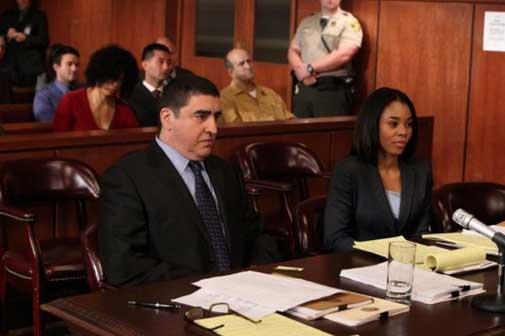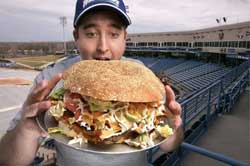
When the cost of a tank of gas now is nearly the same as a newspaper reporter's weekly pay in the mid-'70s, and the cost of a week's worth of groceries for two exceeds a mortgage payment during the same era, it's easy, in a long recession, to be wistful over what once was.
Much of what television currently doles out, for me, eliicits the same reaction as filling up my gas tank: I can't help but remember when you watched TV and usually got your money's worth. The Great Recession has crashed into what already was once appraised as a wasteland, and short-sale programming is endemic.
I began forming this opinion when unscripted programming began appearing on the air. It's cheaper to produce, I read at the time, and for this reason networks especially loved it. But the extent to which hard times have affected prime times has more than doubled in size since then, making watching television. for me, the most unrewarding it ever has been, in more than six decades of doing so.
The economic calamity of what is being done to PBS -- the harshest example of what the recession is doing to television -- is emanating from outside its walls. But here are a few of the viewer assaults that are happening inside commercial television, in the name of economy -- and are being accepted without question or objection by many viewers.
-- Rerun nights. Broadcast networks, like the thrifty homemakers of the '50s, serve up leftovers one night a week, on the weekend. (Miss NBC's Law & Order: Los Angeles, seen above, on Monday? Get another chance to see the same episode, in the same week, on Saturday.)
This isn't being done as a convenience to viewers who might have missed an original showing -- not in an era of DVRs and website downloads. It's just a "shut up and eat leftovers" attitude on the part of TV executives.
-- Lack of patience: Network programmers seem to have been born with hair-trigger instincts. It always has been a frustration when a good program hasn't been given time to grow. But 2011's programming crop seems to drink from the same well as the Wall Street traders who send the major indicators on senseless ups and downs for the shakiest of reasons.

If a series doesn't instantaneously ignite all kinds of fireworks, it's dumped, derided and forgotten. Fox's Lone Star drama, for example, was cancelled last fall after just two episodes.
(It's not too surprising that the same networks that devised the knee-jerk elimination process that drives the many network singing, dancing, cooking and weight-loss competition shows would treat their own programs in the same way.)
Network television has slipped quite a bit, but cable has free-fallen from where it was not that long ago. Read Eric Gould's recent story about National Geographic's cable-television branch, in his latest TVWW Cold Light Reader column HERE and you will see noble lineage, in a recession, means little.
-- More examples of crumbling foundations: Travel Channel, which began as a video version of a well-made travel magazine, has been reduced to mostly and repeatedly showing the same, and often lame, series week after week. Some haven't had a new episode in years, but still secure abundant schedule space.
-- HD Theater began as a showplace for what technology can add to make television worth watching, but now has cars, and little but cars, on its show lineup. Food Network puts a large buffet table of low-cost competition shows on a schedule that once taught viewers that food was more than a prop in a contest.

-- Elsewhere on cable, there are bizarre shows that cost little to produce and attract small fly-like swarms of viewers: People who track ghosts. Dogs that eat strange objects. A man who will eat anything. A man who eats absurdly large amounts of anything. People who never throw anything away, and live amid mountains of junk. People who tell the camera the most gory of details of grisly events they somehow survived.
Whether the examples listed above are necessary reactions to tight times or they're rationalizations designed to pay less and pocket more, their effects on viewers who refuse to settle range from disillusioning to maddening.
Do you have some additional examples, from your own viewing, of the cheapening of television in a recession? Exercise your critic muscles, share those examples with us, and add to the list...